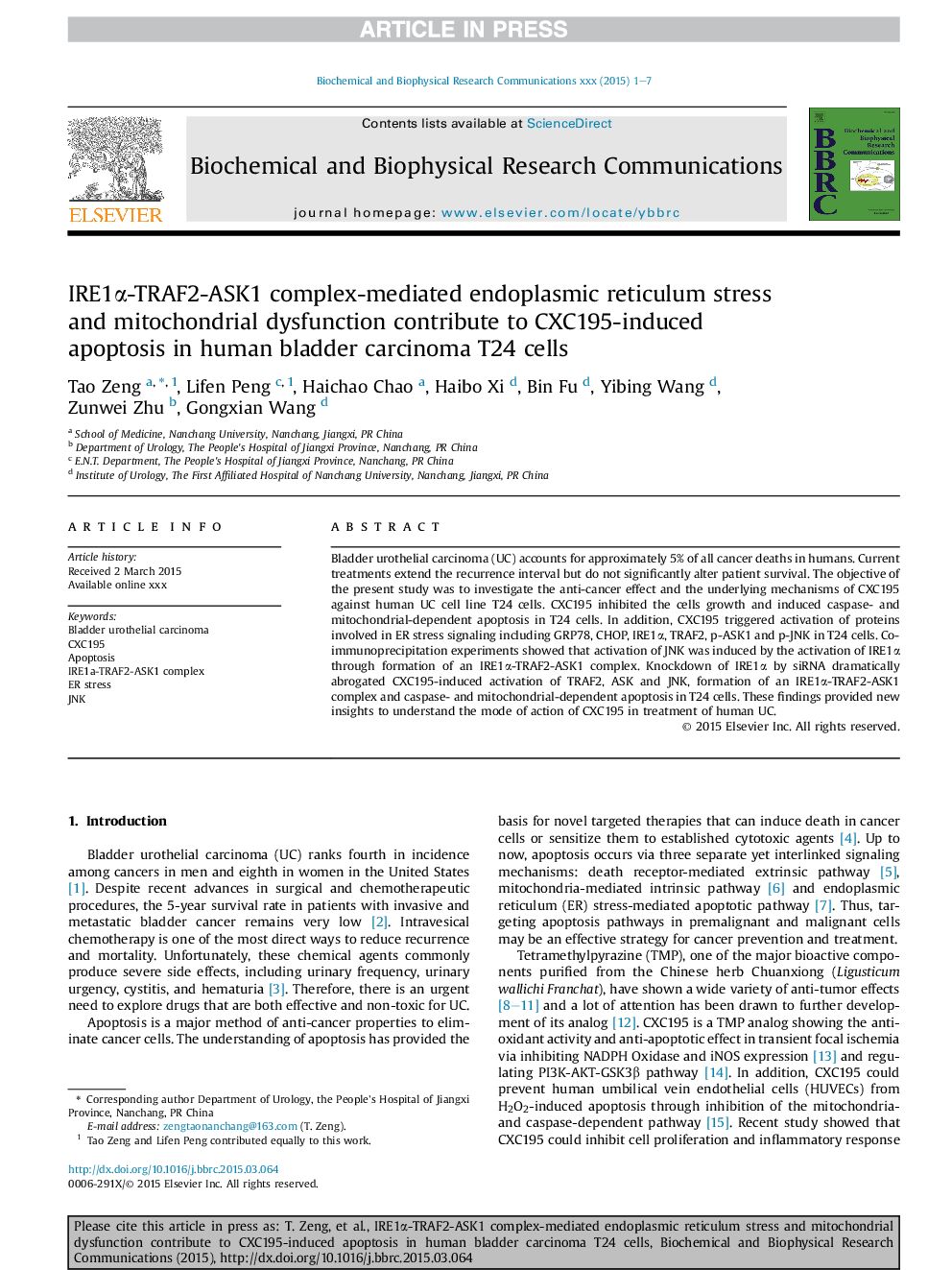| Article ID | Journal | Published Year | Pages | File Type |
|---|---|---|---|---|
| 10751984 | Biochemical and Biophysical Research Communications | 2015 | 7 Pages |
Abstract
Bladder urothelial carcinoma (UC) accounts for approximately 5% of all cancer deaths in humans. Current treatments extend the recurrence interval but do not significantly alter patient survival. The objective of the present study was to investigate the anti-cancer effect and the underlying mechanisms of CXC195 against human UC cell line T24 cells. CXC195 inhibited the cells growth and induced caspase- and mitochondrial-dependent apoptosis in T24 cells. In addition, CXC195 triggered activation of proteins involved in ER stress signaling including GRP78, CHOP, IRE1α, TRAF2, p-ASK1 and p-JNK in T24 cells. Co-immunoprecipitation experiments showed that activation of JNK was induced by the activation of IRE1α through formation of an IRE1α-TRAF2-ASK1 complex. Knockdown of IRE1α by siRNA dramatically abrogated CXC195-induced activation of TRAF2, ASK and JNK, formation of an IRE1α-TRAF2-ASK1 complex and caspase- and mitochondrial-dependent apoptosis in T24 cells. These findings provided new insights to understand the mode of action of CXC195 in treatment of human UC.
Related Topics
Life Sciences
Biochemistry, Genetics and Molecular Biology
Biochemistry
Authors
Tao Zeng, Lifen Peng, Haichao Chao, Haibo Xi, Bin Fu, Yibing Wang, Zunwei Zhu, Gongxian Wang,
